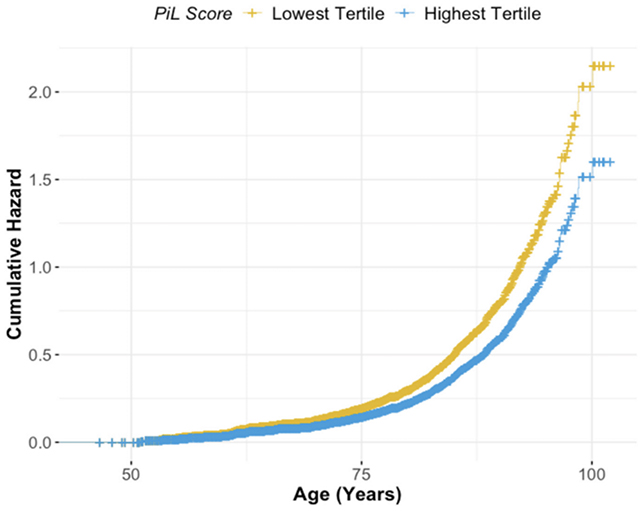Having a purpose in life could help reduce the chance of developing dementia, according to a recent study by researchers from the University of California, Davis.
The findings are based on data collected on 13,765 participants aged 45 and older, who were surveyed between 2006 and 2020 as part of a US population-based longitudinal study. Key details on the volunteers' psychological well-being (including a sense of purpose) and cognitive impairment were analyzed, with follow-up questionnaires conducted up to 15 years later.
Having a strong sense of purpose was associated with an approximately 28 percent reduction in the risk of developing dementia, the data showed. When cognitive decline did occur in this group, it tended to appear at a later age.
Related: There May Be No Safe Amount of Booze When It Comes to Dementia Risk
"Our findings show that having a sense of purpose helps the brain stay resilient with age," says psychiatrist Aliza Wingo.
"Even for people with a genetic risk for Alzheimer's disease, sense of purpose was linked to a later onset and lower likelihood of developing dementia."

While the relationship may not necessarily be causal, the researchers did factor in age, sex, education, and depression (often linked to dementia), as well as genetic risk through the APOE4 gene, eliminating several factors that could explain the link.
The study participants weren't asked specifically about what gives their life meaning, but the researchers suggest purpose can be found in relationships, work, faith, helping others, or setting goals, noting that a purpose in life is personal and subjective.
"While medications like lecanemab and donanemab can modestly delay symptoms of cognitive impairment in Alzheimer's disease, they come with risks and costs," says public health researcher Nicholas Howard.
"Purpose in life is free, safe, and accessible. It's something people can build through relationships, goals, and meaningful activities."
This research mirrors earlier findings associating a strong sense of purpose with a lower dementia risk, but previous studies on the topic have tended to focus on older people over shorter periods of time.
It isn't clear why having a sense of purpose might ward off dementia, but the findings provide interesting context to the ongoing search for treatments for diseases like Alzheimer's, and efforts to find out how they get started in the brain.
"What's exciting about this study is that people may be able to 'think' themselves into better health," says cognitive neurologist Thomas Wingo. "Purpose in life is something we can nurture."
"It's never too early – or too late – to start thinking about what gives your life meaning."
The research has been published in the American Journal of Geriatric Psychiatry.
